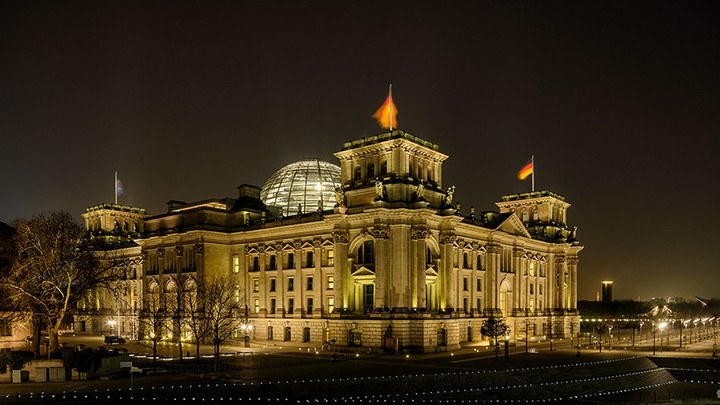The Broadband Map and Federalism
Germany is run by its federal government, state governments, and municipalities, all of which have different tasks and run on different budgets. And occasionally, they follow different agendas. Mathias Röckel explains.

Credits: © Cameris | iStockphoto
Doing Business in Germany: One Country, 16 States, More Than 11,000 Municipalities
Germany, the EU’s largest economy, is a Federal Republic. This means that power is not only divided into the executive, legislative, and judicial branches, but also between federal, state and municipal authorities. Companies wanting to extend their business into the German market should be aware of the consequences.
A good example to study the case of federalism is to take a look at Germany’s broadband map. Or rather, at one of the several broadband maps, such as the one published by the Federal Ministry of Transport and Digital Infrastructure.
The map shows that private households in many regions already have access to 50 Mbit/s connections. Michael Rotert, eco Chairman of the Board, comments: “The federal government has already recognized that the expansion goals for Germany outlined in the Digital Agenda 2014-2017 will not be sufficient to remain internationally competitive. We welcome more generous objectives, such as the 5G initiative that was started last year, and the view to the gigabit society.”
“It needs to be clear that it’s not enough to simply create ever more ambitious objectives – the federal government also needs to implement them. A high-capacity digital infrastructure also requires a future-oriented legal and regulatory framework which simultaneously protects consumer interests and guarantees openness to innovation. Only then can the gigabit society really take off,” Michael Rotert continues.
Different tasks, different agendas, different budgets
But when you look outside the metropolitan areas, you will find that connection speeds vary by location. And this is partly owed to Germany being a Federal Republic. When doing business in Germany, you are doing business in one the country’s 16 states. Your business also will be located in one of the state’s more than 11,000 municipalities. The federal government, the state governments, and the municipalities all have different tasks and run on different budgets.
Today, the country’s political structure leads to federal, state (and EU) funds not being used because municipalities don’t apply for the funding. It leads to municipalities ending up expanding their broadband Internet structure on their own terms and thus to local newspapers, of which Germany still has many, printing photographs of mayors holding shovels to illustrate that they are not afraid of getting their hands dirty when in comes to bringing broadband Internet connections to their voters.
How many municipalities have kicked off their own infrastructure projects in the past twelve months? The question might seem trivial. But try to get an answer, and you will soon learn just how difficult it can be dealing with a country that takes its federalism seriously. Try to get an answer, and you will find not one, but an abundance of answers. You will have, for instance, no difficulties tracking down a broadband map for North Rhine-Westphalia. Or a clock showing what percentage of Bavaria’s municipalities are enrolled in the State’s own funding program. At the local level, the City of Munich, in collaboration with the ISP M-Net, are building a city-wide high-speed fiber optic network to enable FTTH/B (see “Gigabit-Infrastructure: The Need is Proven”).
But try to find the one single contact to give you an overview of all the municipalities in all the states taking part in all infrastructure and funding projects – and you will learn that nobody can give you a straight answer.
More than one authority also means more than one helpdesk
Of course, more than one authority also means that there is more than one office that can help you to do business in Germany. If, for example, your company should decide that it wants to open up a branch in Cologne, you will find helpful information provided by the Federal Ministry of Transport and Digital Infrastructure as well as the Ministry of Economic Affairs and Energy. As Cologne is located in North Rhine-Westphalia, you can also turn to the State Government. The city has its own Chamber of Commerce and Industry. Specifically for the digital economy, there are services such as “Digitale Wirtschaft NRW” (or digital economy North Rhine-Westphalia) and Digital Hub Cologne.
And for the Frankfurt region, a first port of call would be the Digital Hub FrankfurtRheinMain and the local government’s economic development support services.
And the same wealth of services and contact people can be found in other cities and regions as well. A useful link to the state governments is www.deutschland.de/en/topic/politics/germany-europe/state-governments and to local councils is www.oultwood.com/localgov/countries/germany.php. And wherever you want to settle, you can always turn to eco’s own International Members Team (cometogermany@eco.de)!


